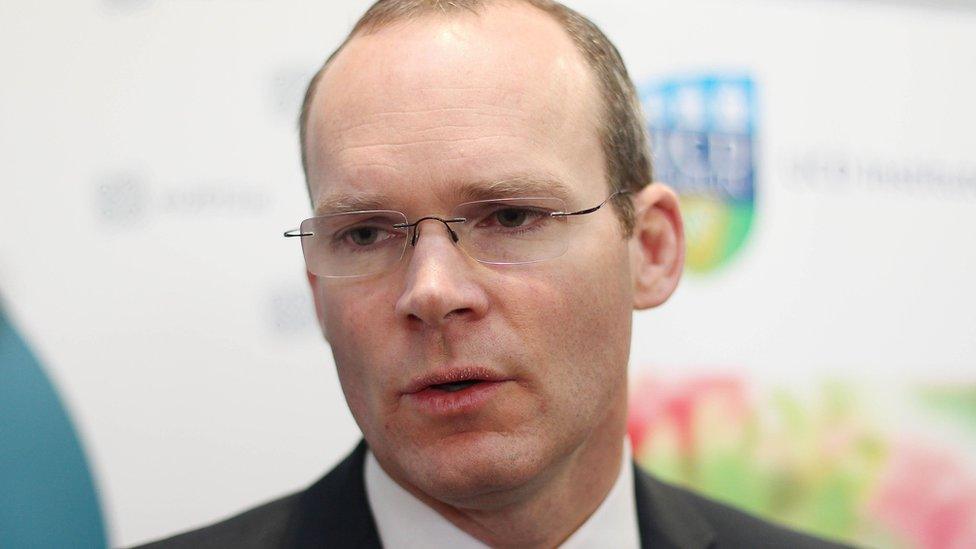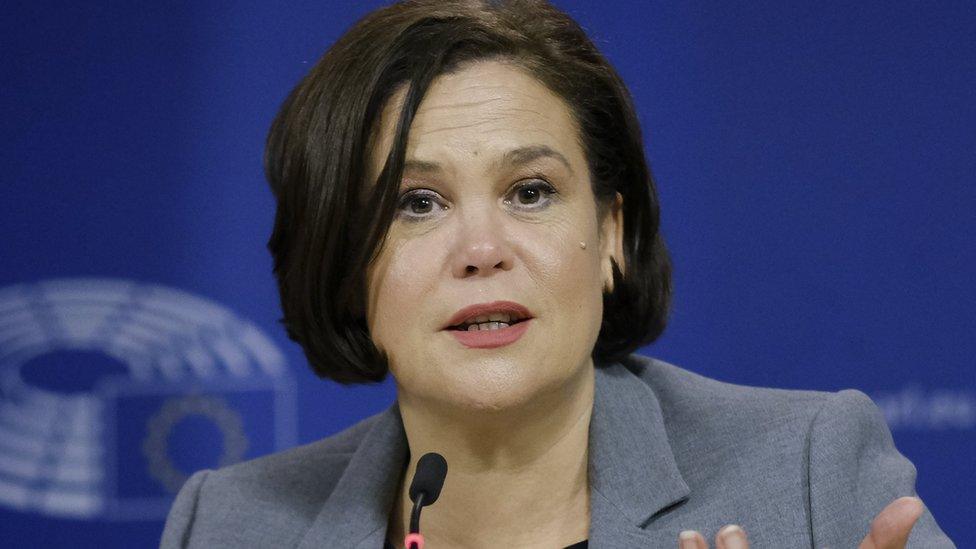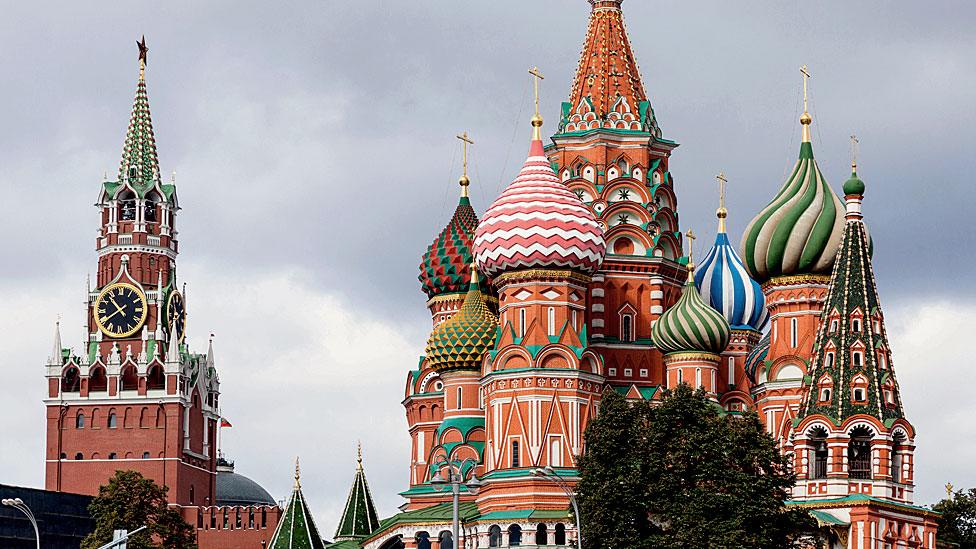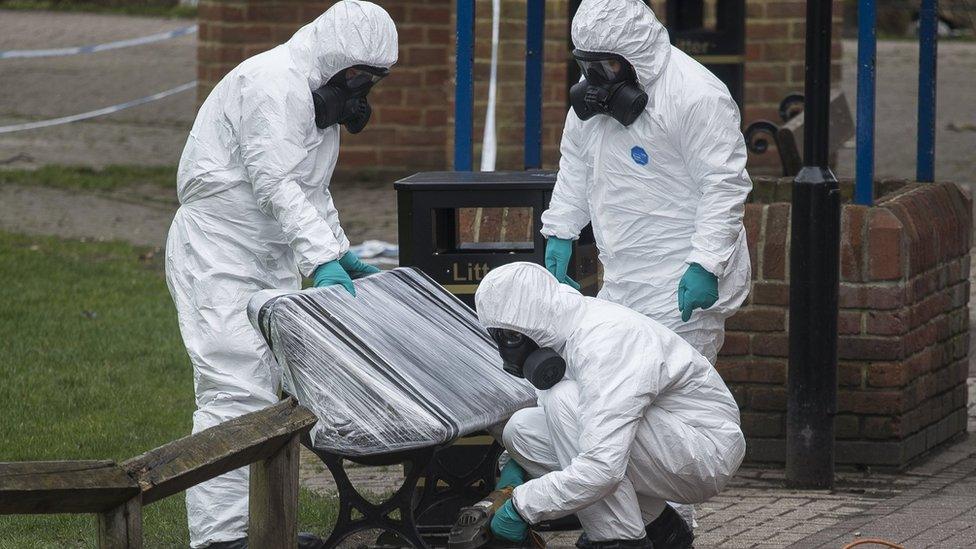Dublin to expel Russian diplomat after poisoning
- Published

Simon Coveney said the attack was an 'affront to the international rules-based system on which we all depend for our security'
A Russian diplomat is to be expelled following the Salisbury nerve agent attack, the Irish foreign minister has confirmed.
The Republic of Ireland is one of 20 countries to have taken action against Russia.
Russia has denied any role in the attack on Sergei Skripal and his daughter, Yulia, earlier this month.
Taoiseach (Irish prime minister) Leo Varadkar said the move was "an act of solidarity with the UK".
He added that the decision was taken based on intelligence from the Garda (Irish police) and Irish defence forces.
In a statement, Irish Foreign Minister Simon Coveney said the incident was a "grave challenge to our shared security".
"The use of chemical weapons, including the use of any toxic chemicals as weapons, by anyone, anywhere, is particularly shocking and abhorrent," he said.
Diplomat must leave
"The attack in Salisbury was not just an attack against the United Kingdom, but an affront to the international rules-based system on which we all depend for our security and wellbeing."
The minister said the Russian ambassador to Ireland had been informed that a member of staff with diplomatic status was to have that status terminated and must leave Ireland.
Mr Varadkar told the Dáil (Irish parliament) that the government is happy to brief other parties about the decision to expel the Russian diplomat.

Sinn Féin leader Mary Lou McDonald said that other parties needed to see the evidence behind the decision
He said that the government had already briefed the main opposition party Fianna Fáil, with which it has a confidence and supply arrangement.
Sinn Féin leader Mary Lou McDonald asked for a briefing and said that parties had to "see the evidence underpinning the decision".
She added that "citing solidarity with the British isn't enough" and described the government as asking parties "to trust Boris Johnson and that's not necessarily the wisest course of action".
Mr Varadkar replied that Mr Coveney would be available to the opposition parties on Tuesday afternoon for a briefing.
There are currently 17 diplomats based at the Russian embassy in Rathgar, Dublin and the individual facing expulsion has been given nine days to leave.
The Republic's move is in line with actions of 16 EU members states as well as the United States, Canada and Australia.
EU leaders agreed unanimously last week it was highly likely Russia was behind the nerve-agent poisoning.
Britain has already expelled 23 Russian diplomats, with Moscow retaliating with a tit-for-tat move.
- Published26 March 2018

- Published23 March 2018
- Published24 March 2018
